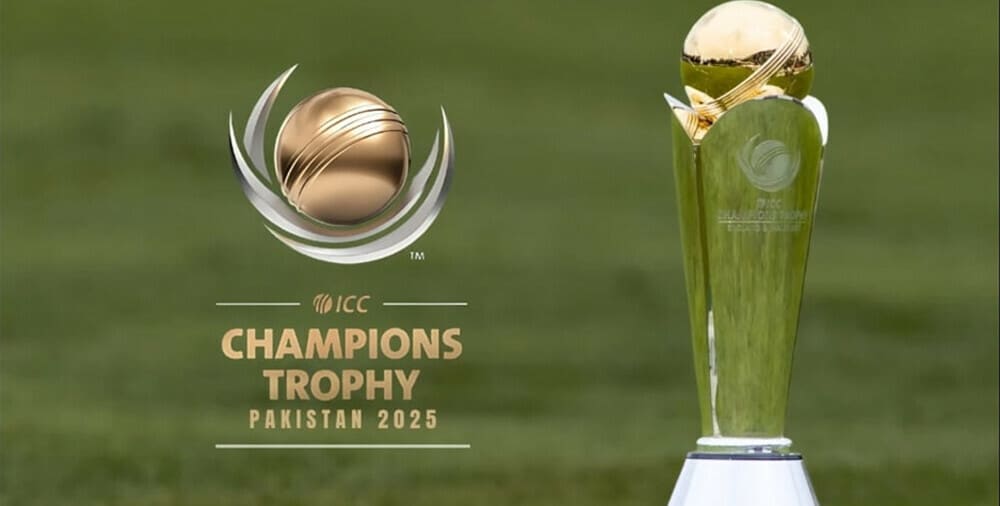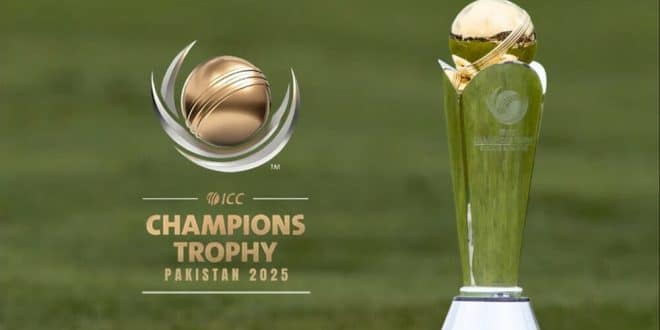
November 29, 2024 – The Fate of the Champions Trophy Will Be Decided Soon
The fate of the 2025 ICC Champions Trophy is hanging in the balance as the International Cricket Council (ICC) is set to hold a critical board meeting on Friday, November 29. The meeting will address the ongoing standoff between the Pakistan Cricket Board (PCB) and the ICC over the hosting rights for the prestigious tournament.
The Champions Trophy, which is slated to be held in early 2025, marks a historic return for Pakistan as the host nation of an ICC event. This would be the first time in years that Pakistan would have the honor of hosting such a significant international cricket event. However, the tournament’s organization has been mired in controversy due to India’s persistent refusal to participate and the complex logistics involved in hosting it in Pakistan.
The core issue revolves around Pakistan’s insistence on hosting the event entirely within its borders, while the ICC has proposed a hybrid model, where some matches would be hosted in other countries. The hybrid model is seen as a compromise to overcome the challenges posed by India’s refusal to send its team to Pakistan, citing lack of government clearance. In light of this, the ICC has made it clear that it is exploring the option of stripping Pakistan of its hosting rights if the hybrid model is not agreed upon.
This development has now reached the point where the ICC board will be making crucial decisions that could determine the future of the tournament and the relationship between the board members, including Pakistan’s role in the ICC.
The Hybrid Model Controversy: A Standoff Between PCB and ICC
The hybrid model proposed by the ICC would involve hosting a portion of the tournament in other countries, a solution aimed at accommodating India’s refusal to travel to Pakistan. This would mean some of the matches, possibly involving India, would be moved to neutral venues in countries such as the UAE or other cricketing nations.
However, Pakistan’s stance remains firm. According to PCB sources, the board has categorically rejected any proposals involving co-hosting the event or additional financial compensation. Pakistan is resolute in its commitment to hosting the entire Champions Trophy within its own borders, viewing the event as an opportunity to showcase its renovated stadiums and further solidify its position as a cricketing hub in the region.
The PCB’s position on the matter is one of national pride, with the board not willing to compromise on hosting rights after investing heavily in infrastructure. As a result, the PCB has made it clear that it would not accept any proposal that reduces its role as the sole host of the Champions Trophy. It remains committed to holding the event fully in Karachi, Lahore, and Rawalpindi, where stadiums have been renovated at a cost of over 13 billion PKR.
India’s Involvement: The Root of the Dispute
India’s role in the Champions Trophy dispute cannot be overlooked. The Indian cricket team has consistently refused to travel to Pakistan due to ongoing political tensions between the two countries. India’s refusal to play in Pakistan has created a significant hurdle for the PCB, which was preparing to announce the tournament schedule before India’s stance complicated matters.
The lack of government clearance from India has become a central issue in the discussions surrounding the event, with Pakistan unable to make final arrangements for the tournament. The ICC’s proposed hybrid model is seen by some as a way to resolve this issue by relocating Indian matches to neutral venues. However, the PCB is unwilling to compromise on its hosting rights, which it views as a matter of sovereignty and cricketing pride.
The Pressure Mounts on Pakistan: A Voting Process on the Horizon
The situation has escalated to the point where the ICC board is now involved. In the upcoming meeting on November 29, the board will discuss the hybrid model, and if Pakistan does not agree to the proposed changes, the ICC is expected to resort to a voting process to decide whether to relocate the event entirely or not. If a majority of board members vote in favor of relocating the tournament, it could be a significant blow to Pakistan’s cricketing ambitions.
The ICC’s position is not just based on the logistics of the event but also on financial considerations. India’s dominance in the cricketing world and its substantial financial influence within the ICC make it a key player in any decisions involving the future of global cricket tournaments. The growing financial power of India has increasingly swayed decisions within the ICC, and as India’s Jay Shah is set to take over the leadership of the ICC next month, the influence of India within the organization is likely to increase even further.
Financial Implications and Potential Legal Action
If the tournament is relocated, the PCB could face severe financial losses, particularly after its significant investment in upgrading the country’s cricket infrastructure. PCB officials have indicated that they may seek legal recourse to protect its hosting rights and compensate for any damages incurred due to the decision. The PCB has already begun consultations with lawyers in London, exploring all possible avenues for challenging any decision that strips Pakistan of its hosting rights.
The ICC Board: A Diverse Collection of Voices
The ICC board consists of 17 members from various cricketing nations, each with their own interests and priorities. The board is set to play a pivotal role in determining the future of the Champions Trophy. Some of the key figures in the ICC board include:
- Greg Barclay (Chairman, New Zealand)
- Jay Shah (India)
- Mohsin Naqvi (Pakistan)
- Mirwais Ashraf (Afghanistan)
- Mike Baird (Australia)
- Faruque Ahmed (Bangladesh)
- Richard Thompson (England)
- Bryan MacNeice (Ireland)
- Roger Twose (New Zealand)
- Dr. Musa Abdul Samad (South Africa)
- Shammi Silva (Sri Lanka)
- Dr. Kishore Shallow (West Indies)
- Tavengwa Mukuhlani (Zimbabwe)
As the board meets to discuss the issue, the diverse interests of the members will come into play. While some countries may prioritize the financial benefits of a hybrid model, others, including Pakistan, may hold firm on the importance of national pride and the principle of hosting the event entirely within their borders.
What’s Next for Pakistan Cricket?
The ICC’s decision on November 29 could set a significant precedent for the future of cricket tournaments. For Pakistan, it is not just about hosting the Champions Trophy but about asserting its position as a key player in international cricket. If the ICC decides to strip Pakistan of its hosting rights, it could have far-reaching consequences for the relationship between the PCB and the ICC, as well as for future cricketing events in the region.
While the situation remains fluid, all eyes are on the ICC board meeting this Friday, where a crucial decision will be made. Will Pakistan’s resolve to host the event in its entirety be respected, or will the hybrid model take precedence, reshaping the future of the Champions Trophy?





